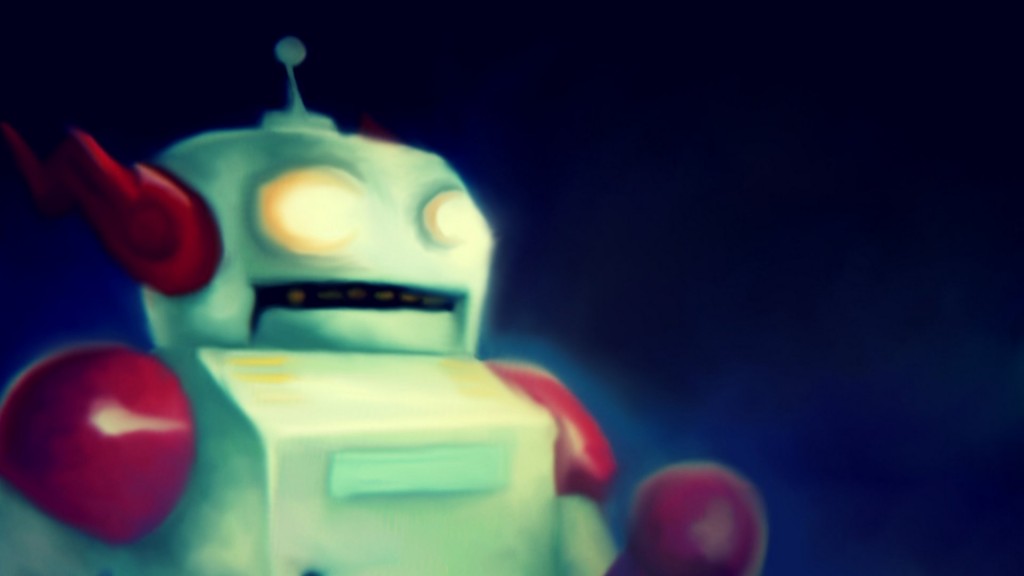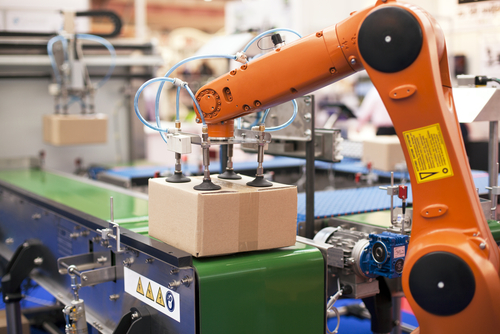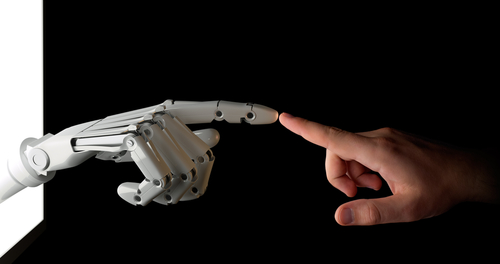The following is a guest post. Graham Rittener is a Founding Partner of Zinc, a Design & Innovation Lab in Barcelona that partner with companies to bring their ideas to life through user-centered design. Working across both the physical and digital realms, Zinc is currently designing a robot for a company in the Gulf region.
Like many people, I have a love / hate relationship with technology. I’m fascinated by innovation in the technology space, and I’m addicted to the internet. Conversely, I get really frustrated when technology lets me down, and it drives me crazy when I see people sit down to dinner together and everybody pulls out their phones and nobody talks! On a more serious note, I feel both excited and terrified at where technology is taking us. There are so many amazing ways technology is fuelling innovation and helping to improve peoples’ lives all over the world, but at the same time, it is disturbing when you hear about the increasing obsolescence of human endeavour in a robotic world. The major concern of course is that robots will take over more of our money earning opportunities and humans will become increasingly surplus to requirements.

This subject has become very prescient to me in recent months because we’re currently designing a robot….and I have to say it’s a lot of fun! However, it does of course lend itself to a philosophical debate about the role of robots in our future. On a practical level, how much of our society structure will become dominated and run by robots? How many more people will lose jobs due to the rise of machines? What impact will it have on our social interactions and our human relationships? All good questions and I certainly don’t have the answers to all of them.
What I do know is that robots can definitely have a positive role in our society, and of course, they already are doing. They are increasingly being used in dangerous situations for humans like deep sea exploration, fighting fires, rescuing injured people and all sorts of other hazardous environments. More controversially, they are playing an increasing role in ‘Care’, both in healthcare and elderly care. In an ideal world, in our old age, we would all be looked after by loving caring humans, but that has already proved to be unrealistic, as anyone who follows the news in the UK will be able to tell you. Furthermore, changes in demographics (we’re living longer and having less children) mean we are becoming an increasingly ‘top heavy’ society with more and more old people being looked after by less and less young people. Whether we like it or not, robots will become more important to us in this context.
However, the general consensus seems to be that robots will take over more and more of the menial work that humans currently do. Already, robots have replaced hundreds of thousands of factory workers globally, (very commonplace in car manufacturing) and some companies like Foxconn have made it an explicit strategy that they will be replacing a million factory workers with robots. Not good news if you are a dedicated factory worker.
So, it got me thinking about where humans can excel in this new world, and how robots and humans can complement each other. It didn’t take long to conclude that it would be in the field of ‘Creativity’, but that’s a big word so it needs to be defined, and that’s not easy. There are many definitions floating around but in my view, is is essentially the combination of having new ideas and bringing them to life in a way that are relevant to other people. If that is broadly true, then what goes into that process? Well, our ideas stem from our experiences. We are complex creatures that log and store multi-sensory data throughout our lives. That data can linger in either our sub conscious or conscious minds and we don’t really know how to navigate our minds and extract it. Not only that, but that data isn’t just like a bunch of documents stored away on a computer – or a robot. A lot of that data has strong connotations with thoughts and emotions (or feelings).
This is where it gets interesting because surely that is the key difference. Humans have emotions, and emotions are a fundamental part of creativity. On the extreme side, that may be a passion. Actually most people who are ‘creative’ are passionate about what they do. So much of the output of creativity doesn’t just trigger mental reactions (thoughts) but feelings and emotions. Art and music are obvious examples but other fields too like architecture and innovation. Think about moments when you walk into an incredible building that evokes a strong feeling, more than a thought process. Sometimes it’s even hard to describe what the feeling is. The same goes for innovation. So often, the really compelling products or services we love are evocative. After all, we ‘love’ them, we don’t just think they are very good in a logical way.
So, how can humans invoke these amazing experiences? Well, because we use creativity to do it. We use creative problem solving processes. We fuse ideas that are based on myriads of experiences that stimulated some kind of emotional response in our past. We know how to make other humans have amazing emotional responses, and that is where robots will struggle, at least in the near future.
They can store all the data and they can navigate and find it, and they will be able to imitate us to a certain extent. They will learn that a specific configuration of ideas that are implemented in a certain way will have a certain response from a certain type of human, but they will be behind the curve for a very long time (possibly always) because they will never have real emotions. We may be able to program them to understand some human emotions and respond how humans might respond in certain situations but they will not have the individuality and complexity that humans have. After all, humans are inconsistent and flawed in many ways, that’s what makes us who we are, and that’s not something robots can mimic.
So does that mean all factory workers are doomed and everyone who is supposedly ‘creative’ will be fine? Not at all, and the really important part for me is that I believe all humans have degrees of creativity, but so many of us have become disconnected from that side of us. Think about children from the ages of about 2 to 6 years old. There are very few children who do not love drawing, painting, and generally making stuff at that age. I believe humans are born with a creative spirit but our education system does a terrible job at nurturing and cherishing that spirit. I strongly agree with Sir Ken Robinson’s big message, which is that our school curriculums and teaching methods are destroying creativity, but that’s for another blog.
The point being is that robots can be a tremendous help to humans in the future, especially if humans use creativity to design them to be helpful and complementary to our own existence. Just like washing machines and vacuum cleaners took away so much of our menial work, robots can help us on a massive scale. But rather than think about how we might become surplus to requirements without jobs, we need to cherish creativity, we need to completely change our educational system to value it more, and ultimately we need to channel our human energy into big ideas that can improve the human condition and make us happier people. I’m happy to say that robots don’t understand happiness…not yet anyway.
Visit www.zinc-group.com to learn more about Graham, the company and the exciting projects being developed right here in their Barcelona HQs.
Image credit: Robotic Man, Robotic Arm, and Future Hands via Shutterstock.









Nice post!
I agree in almost everything your say, but I think you are missing one important point regarding robots, specially the industrial ones:
They do destroy factory worker jobs, but they also create high-level jobs like engineering jobs, that are the ones we need if we don’t want to be a “low-cost country”.